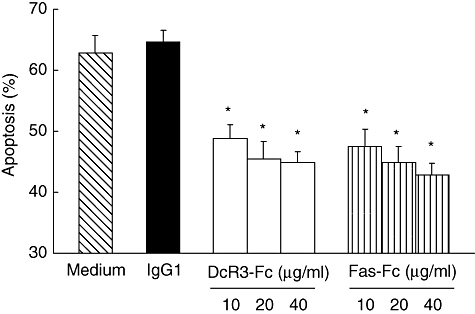Fig. 2.

Soluble decoy receptor 3 (DcR3)–Fc inhibits activation-induced cell death (AICD) in human T cells. Human T cells were isolated from peripheral blood followed by stimulation with phytohaemagglutinin for 24 h, and after being cultured in the presence of interleukin-2 for 5 days the long-term activated T cells were restimulated with plate-bound anti-CD3 monoclonal antibody on day 7 to induce AICD in the presence or absence of soluble DcR3–Fc proteins (0–40 μg/ml), Fas–Fc proteins (0–40 μg/ml) or soluble immunoglobin G1 (IgG1) (10 μg/ml) as the control (*P < 0·01 by Student's t-test when compared with medium alone samples). The experiments were performed more than three times, and a representative data set is presented. A similar result was obtained with T cells purified from two other independent donors.
